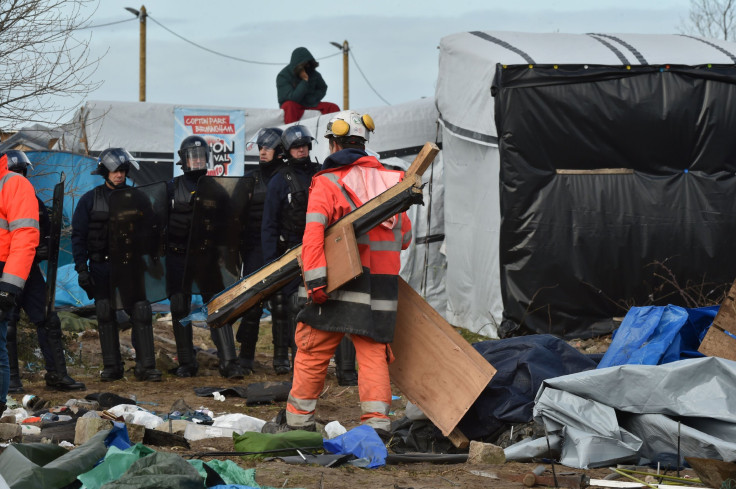EU Refugee Crisis In France: Calais Camp Demolition Begins As Asylum-Seekers Look To Resettlement

French demolition crews began clearing Monday part of the southern half of the refugee camp known as “the Jungle” in Calais, northern France. Authorities claim that around 1,000 people are living in that part of the camp, while aid workers have said it is closer to 3,500.
Authorities are relocating those affected by the demolition into heated shelters nearby. Many people living in the camps told aid workers they did not want to leave, however, as the majority of refugees in Calais are trying to cross from France into the U.K. through the underground Eurotunnel and fear being pushed farther from their goal if they’re relocated.
The refugees and economic migrants in Calais have been part of a broader migration crisis across Europe. Escalating violent conflicts in the Middle East and North Africa pushed more than 1 million people to cross into Europe seeking asylum in 2015, and high numbers are set to continue in 2016. EU regulations stipulate that an asylum-seeker must apply for asylum in the country in which he or she wishes to permanently settle, and the high number of people trying to cross into the U.K. has caused a bottleneck along its border with France.
France begins dismantling part of Calais ‘Jungle’ migrant camp https://t.co/ExgTEXdng3 pic.twitter.com/xODYPcmr8U
— FRANCE 24 (@FRANCE24) February 29, 2016
While restaurants, places of worship and other community buildings have popped up in the refugee camp, the southern section is ramshackle and poses a high risk of the spread of disease, according to authorities. Refugees have experienced constant tumult and change in their lives, and the move would be difficult for them, according to one aid worker.
The demolition will “make a terrible situation for children much worse,” Ginny Howells, Save the Children's emergency manager in Calais, told the BBC. There are an estimated 651 children living in the Jungle, with more than half of them unaccompanied.
France has offered to relocate refugees to less crowded refugee centers throughout the country if they wish, or allow them to apply for permanent asylum in the country.
© Copyright IBTimes 2024. All rights reserved.






















